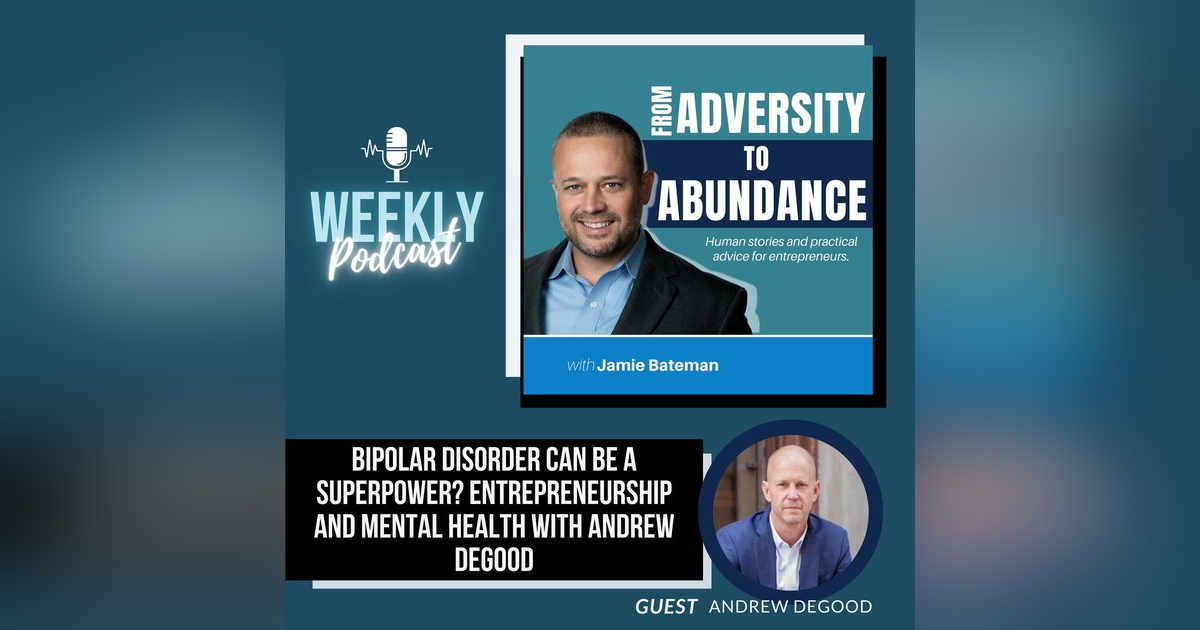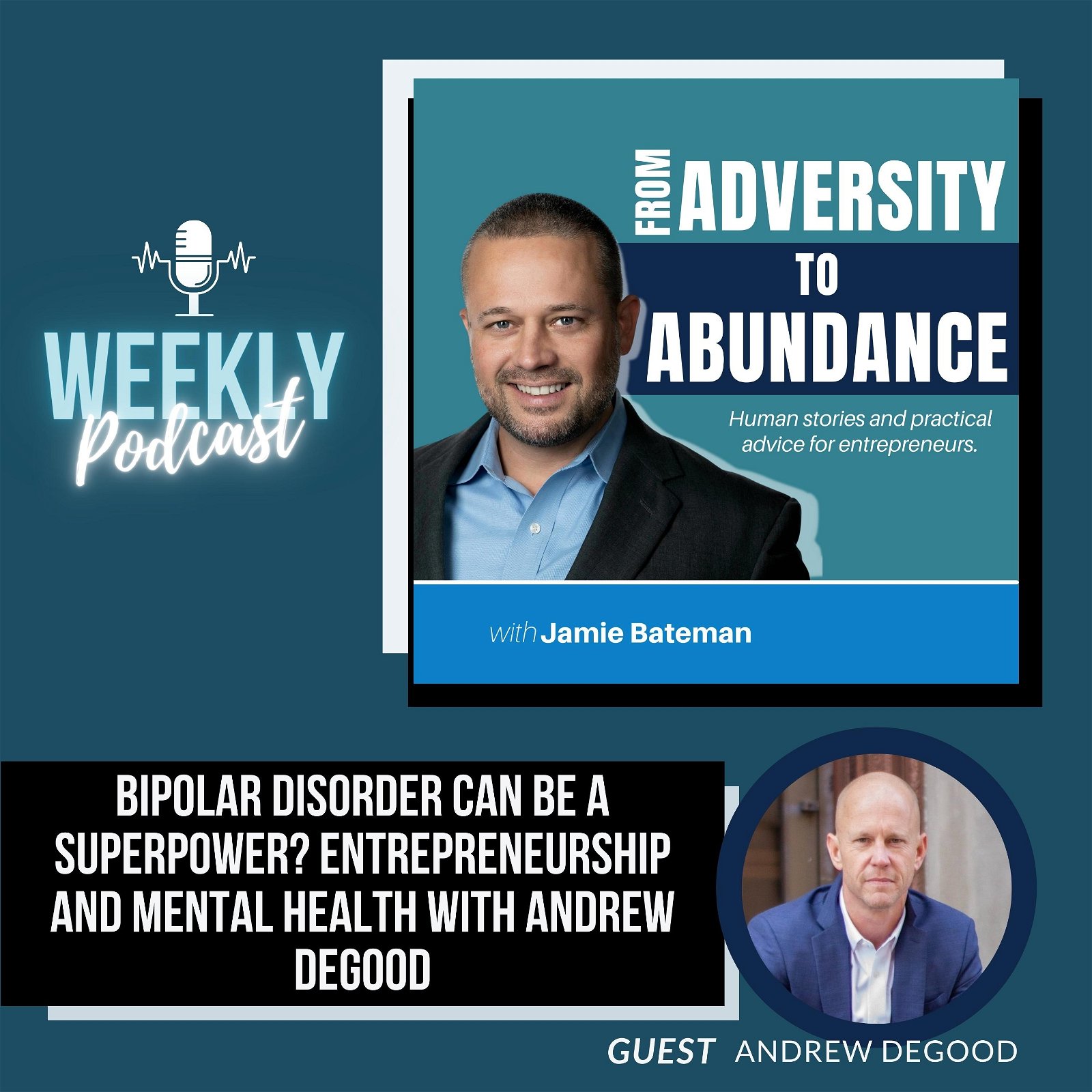Bipolar Disorder Can be a Superpower? Entrepreneurship and Mental Health with Andrew DeGood


In the cutthroat world of entrepreneurship, success often comes at a cost. But Andrew DeGood's story takes an unexpected turn, revealing a hidden battle that threatened to unravel everything he had worked for. His story is a moving and impactful journey that sheds light on the mental health challenges faced by entrepreneurs.
Jamie Bateman, the host of the From Adversity to Abundance Podcast , delves into Andrew's struggle with Bipolar II Disorder, which went undiagnosed for many years. Andrew's experience of navigating through high-performance periods, coupled with the burden of keeping his condition a secret, resonates with the audience on a deep level. The candid conversation between Jamie and Andrew offers a unique insight into the intersection of entrepreneurship and mental health, highlighting the challenges and the inspiring triumphs. Through Andrew's vulnerability and transparency, the audience gains a profound understanding of the impact of mental health on entrepreneurship, creating a relatable narrative that fosters empathy and understanding.
In this episode, you will be able to:
- Mastering Mental Health Challenges in Entrepreneurship: Uncover strategies for thriving amidst challenges.
- Navigating the Impact of Bipolar II Disorder: Understanding and managing its unique effects.
- Advocating for Mental Health: Embracing the power of advocacy for a healthier entrepreneurial community.
- Managing the Emotional Toll of Leading a Company: Building resilience and emotional well-being for successful leadership.
- Exploring the Intersection of Mental Health and Entrepreneurship: Understanding the dynamics to foster personal and professional growth.
In the entrepreneurial world, things can change really fast. Don't compound what might be a problem by creating a much bigger problem. - Andrew DeGood
Books and Resources
Man Enough: Undefining My Masculinity
Ideaflow: The Only Business Metric That Matters
Connect with Andrew DeGood:
FACEBOOK: https://www.facebook.com/andrew.degood.9
INSTAGRAM: https://www.instagram.com/adegood
LINKEDIN: https://www.linkedin.com/in/andrewdegood/
Haven Financial:
https://www.myfinancialhaven.com/jamiebateman/
ATTENTION:
Unlock the secrets to a transformative life with “From Adversity to Abundance: Inspiring stories of Mental, Physical and Financial Transformation”. Buy your copy now and embark on a journey from challenges to triumphs!
AMAZON: https://www.amazon.com/dp/B0CGTWJY1D?ref_=pe_3052080_397514860
Connect with us
WEBSITE: https://www.adversity2abundance.com
Leave us a rating or review: https://www.adversity2abundance.com/reviews/new/ or here
Got comments, feedback or suggestions? We’d love to hear it! https://www.adversity2abundance.com/contact/
Follow From Adversity to Abundance Podcast
FACEBOOK: https://www.facebook.com/profile.php?id=100089126144055
INSTAGRAM: https://www.instagram.com/adversitytoabundancepodcast/
LINKEDIN: https://www.linkedin.com/company/89949391/admin/feed/posts/
YOUTUBE: https://www.youtube.com/@FromAdversity2AbundancePodcast
Connect with Jamie
BOOK: From Adversity to Abundance: Inspiring Stories of Mental, Physical, and Financial Transformation
LINKEDIN: https://www.linkedin.com/in/jamie-bateman-5359a811/
TWITTER: https://twitter.com/batemanjames





